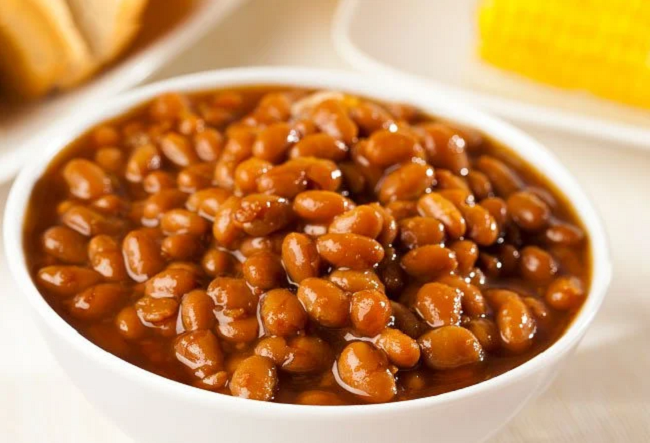Increasingly, plant-based diets are becoming more and more popular. A study that emphasised the potential role of diet in cancer treatment and prevention revealed that incorporating beans into the diet could aid in cancer prevention and treatment in colorectal cancer survivors.
Research from the University of Texas MD Anderson Cancer Centre, in a finding published in eBIOMedicine, part of the Lancet family of journals, said that adding a cup of navy beans daily to their regular meals saw positive changes in their gut microbiome, which is associated with cancer prevention and improved treatment outcomes.
According to them, beans are a readily available prebiotic food, and there was an improvement in participants’ gut health, marked by an increase in beneficial bacteria, which wards off the harmful bacteria in those who had these beans over eight weeks.
Obesity, a poor diet, or gastrointestinal issues can cause disturbances in a person’s normal microbial balance. For people who have had or have colorectal cancer, these changes cause inflammation and can affect survival. Even after cancer treatment or precancerous polyp removal, a poor diet and an unbalanced gut microbiome can have negative effects on prevention efforts for both cardiovascular disease and cancer.
Beans, particularly small white navy beans, are full of gut-supporting fibres, amino acids, and other nutrients, which can help the beneficial bacteria in your colon flourish, supporting immune health and regulating inflammation.
Despite being accessible and cost-effective, legumes are frequently avoided by many people due to common side effects such as gas and intestinal discomfort. These are not dangerous but can be unpleasant and even painful for some people, but they can be mitigated by proper preparation and consistent consumption.
The randomised BE GONE trial followed 48 men and women over 30 who met the criteria for obesity based on their body mass index (BMI) or waist size and who had a history of intestinal walls that suffered damage through injury or diseases such as a wound, ulcer, or cancer.
This included patients with a history of colorectal cancer (75 percent) and/or high-risk, precancerous polyps of the colon or rectum detected at colonoscopy. For eight weeks, participants either followed their regular diet or included a daily cup of organic, canned, pressure-cooked white navy beans.
The participants in the study were able to choose and prepare their meals, with close follow-up and counselling from the study dietitian. Every four weeks, participants provided stool and fasting blood samples to assess shifts in the gut microbiome as well as host metabolites and markers.
They were considered adherent if they consumed at least 80 percent of the beans over the intervention period and followed the prescribed regimen at least five days a week.
Limitations of this study include participant aversion to continually consuming navy beans. No serious side effects were reported.
The findings of the study included that the beans did not appear to induce gut inflammation or seriously impact bowel habits, which is crucial for colorectal cancer survivors and patients. However, once participants stopped eating the beans, the positive effects faded quickly, highlighting the need to educate patients on how to maintain healthy habits.
The study highlights the therapeutic role of naturally prebiotic-rich foods while further emphasising the need for consistent and sustainable dietary adjustments for high-risk cancer patients.
In the next steps, researchers will focus on a wider variety of prebiotic foods and how changes to the microbiome affect patients undergoing immunotherapy.
Professor David Irabor, a colon cancer expert at the University College Hospital (UCH), Ibadan, said in a remark that increasing cases of colorectal cancer are linked to the westernisation of Nigerians’ diet.
According to him, “intake of too much red meat is bad. That is already concluded. Likewise, the entrails of a butchered animal, also called variety meats or organ meats, like other fatty foods, can also predispose to colon cancer. That is why America and the UK top the list of countries with colon cancer because of their high meat consumption.
“Our local diet, because of its high fibre content, is super effective in protecting against colon cancer. This is unlike the processed foods and fast foods that many people now favour above a bolus diet, like eba, pounded yam, and tuwo, which are taken with vegetable stew.
“Intake of bolus diets like eba and pounded yam will ensure that the stools, including toxins that can start to cause changes within the gut, do not stay too long inside them, unlike processed foods such as pasta, noodles, and so on. Unfortunately, people now eat more fast food, which is bad for their health. The changing diet is changing the internal environment of the colon and making us more susceptible to colon cancer.”
Previously, researchers listed the inclusion of beans as helpful in maintaining cognitive health, lowering the risk of dementia, and beating depression. It is also a food with iron to treat anaemia, improve energy, and be protective against heart disease.
In research published online in the issue of Neurology, the medical journal of the American Academy of Neurology, it was reported that people who consumed an anti-inflammatory diet that included more fruits, vegetables, beans, and tea or coffee had a lower risk of developing dementia later in life.
They stated that such a diet is a potent “nutritional tool to help fight inflammation, one of the biological pathways that could contribute to brain ageing, including dementia and cognitive impairment later in life.
Read Also: Late Oba Balogun’s reign as Olubadan impactful — Obasanjo
